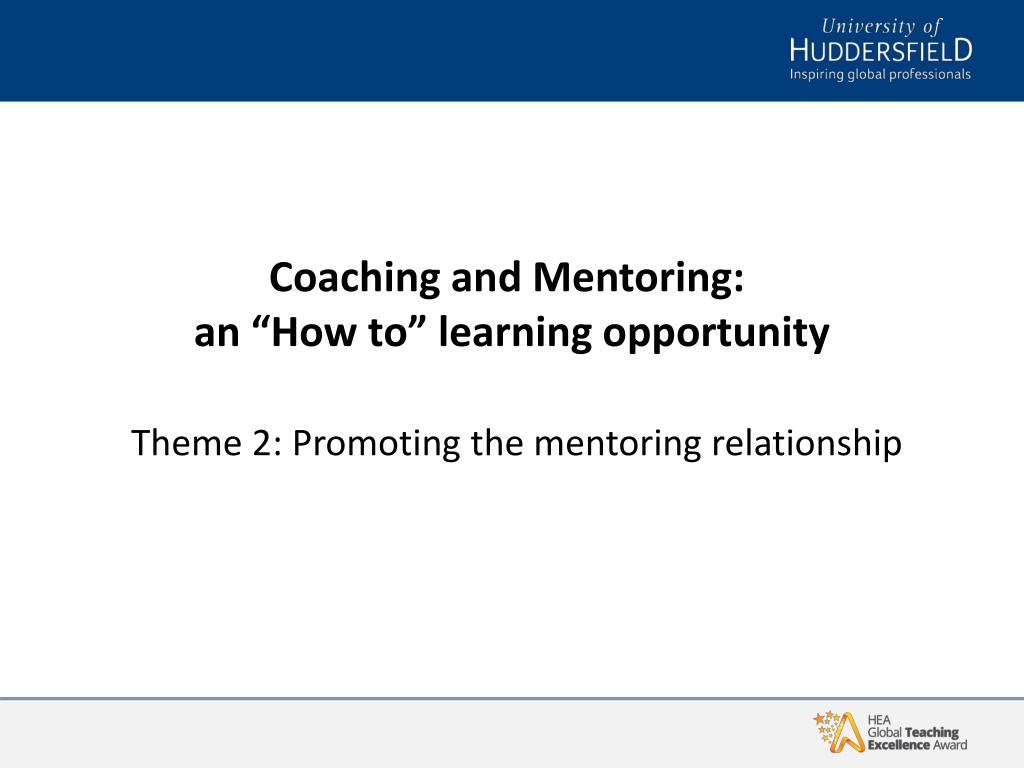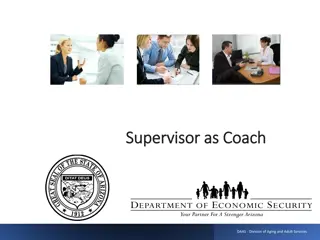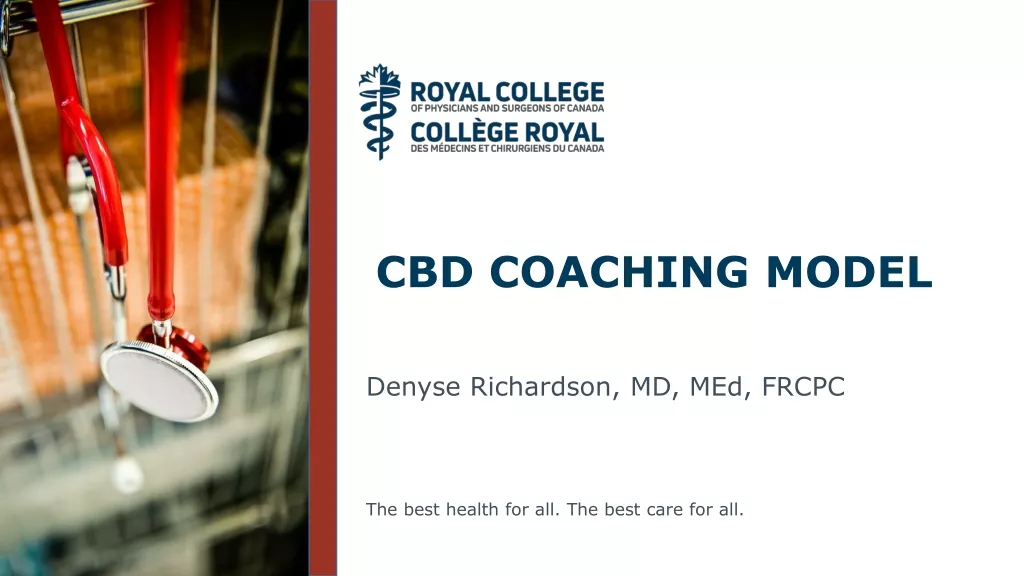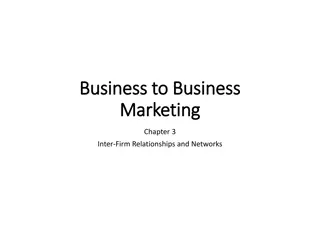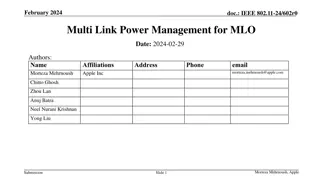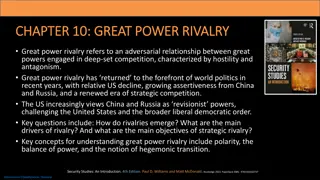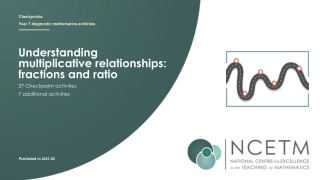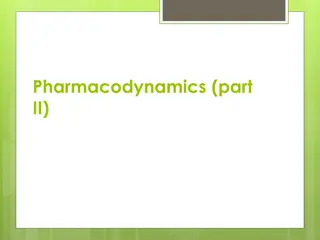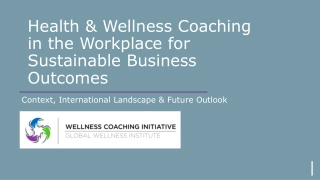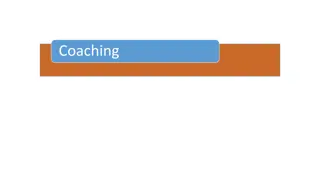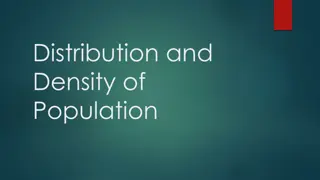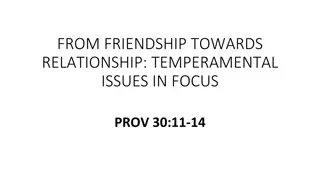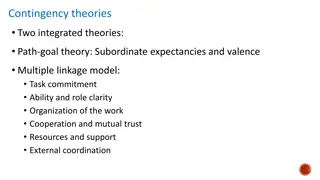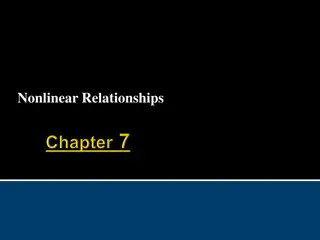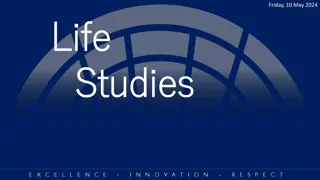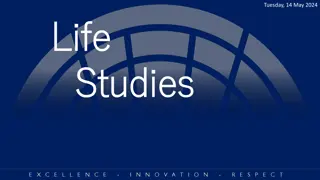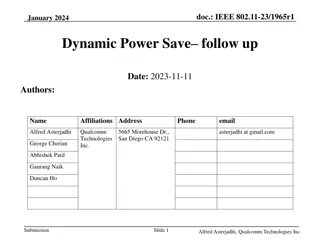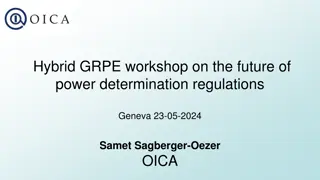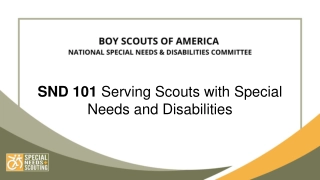Exploring Power Dynamics in Mentoring and Coaching Relationships
This session delves into strategies for fostering effective mentoring and coaching relationships, emphasizing the importance of considering power dynamics, goal-setting, and fostering independence in proteges. Mentoring relationships are seen as socially constructed power dynamics that can advantage or disadvantage certain groups. Mentors may influence proteges through knowledge and experience, shaping them to reflect their own values and norms. Understanding and navigating power dynamics is crucial for empowering proteges and promoting mutual growth.
Download Presentation
Please find below an Image/Link to download the presentation.
The content on the website is provided AS IS for your information and personal use only. It may not be sold, licensed, or shared on other websites without obtaining consent from the author. Download presentation by click this link. If you encounter any issues during the download, it is possible that the publisher has removed the file from their server.
Uploaded on Apr 06, 2024 | 4 Views
Presentation Transcript
Coaching and Mentoring: an How to learning opportunity Theme 2: Promoting the mentoring relationship
Today This session will explore strategies and methods used to build and maintain an effective mentoring/coaching relationship with the mentee/coachee protege , and where appropriate, with the sponsor Importantly . Consider the influence of power and congruence
Consider the following: Who controls or should control the power in a mentoring/coaching relationship? Who sets the goals? Who leads the conversations? Is it the mentor or the mentee? Is it the same in a coaching relationship? Mentors and coaches should work to empower their proteges , identify their own needs and become increasingly independent mentors and coaches should respond to developmental needs, and the protege should accept increasing responsibility for managing the relationship. Is this linked to formality?
Mentoring relationships can be characterized as socially constructed power relationships that are designed to advantage certain groups while disadvantaging other groups. Mentors can be considered "superior" by virtue of their knowledge and experience their main task could be seen as passing on to or "filling up" their prot g s with this "inside knowledge"
The mentoring relationship combines psychosocial inferences of power influence of one person over others, stemming from an individual characteristic, an interpersonal relationship, a position in an organization, or from membership in a societal group Mentoring relationships involve two kinds of power: one internal to the relationship and existing between mentor and prot g , and one external to the relationship that reflects the power dynamics of the organization.
Mentors may exercise power through the assumptions they make about their prot g . Mentors may function within a framework of power relations that assumes that one person knows what is best for the other, has superior knowledge and skills and is perceived as somewhat superior Prot g s will simply become replicas of their mentors and uncritically accept their mentors and their organizations or Sponsor/institutions cultural norms and values Social learning
Key point: Power issues both internal and external to the relationship affect mentoring relationships. To ignore these dynamics of power is to fail to understand the context of the relationship.
In groups (20 mins) Consider what actually goes on within mentoring and coaching that has the power to influence the prot g ? What do mentors, coaches and prot g s actually do in the expectation that it will bring about individual change? Reflect upon your own experiences so far - share these in your smaller groups and present a summary to the whole group As a mentor and coach, consider examples of power and control - how did it make you feel? What did you do (positive and negative)? What would/did you do as a prot g ?
Mentoring/coaching across difference Increase awareness of the ways you are a product of your past can help you avoid assuming that others see the world in the same way. Social construct Get curious about the experience of others who have different life experiences. Be aware of your own assumptions. Develop comfortable and open conversation about differences have much greater potential value for both mentor and mentee Empathy and seeking to understand is a critical step in building a mentoring relationship. Address differences openly.
Communication: Relationship building 1. Increase your awareness of yourself and others. You are the vessel through which mentoring takes place. The more you are clear about your own agenda and able to separate out your own thoughts, feelings, and wants from those of your mentor/mentee, the greater the potential for intentional partnership and mutual benefit. The more time you spend in another person's presence, you are communicating that person's importance to you and/or reflecting your own importance. Are you doing this consciously or unconsciously?
2. Get curious about the other person's story. Listening in order to learn something new (rather than to confirm what you already know) is essential to good mentoring. When you get curious about the other person s story, you open up the possibility of greater connection and value for both parties. "In order to understand what another person is saying, you must assume that it is true, and try to imagine what it could be true of." - George Miller
3. Listen for passion and potential. Great mentoring means understanding what makes the other person tick, what has brought them to this moment in their career, and where they would like to go next. Listening for potential means listening to people as if they have all the tools they need to be successful, and could simply benefit from exploring their thoughts and ideas out loud.
4. Share your experience. One of the pleasures of mentoring is the chance to share one s own hard-earned experience so that it might be helpful to others coming along a similar path Humans thrive best when we grow in the presence of those who have gone before.
In breakout rooms (15 mins) Consider each of the following: Listen for passion and potential. Increase your awareness of yourself and others. Share your own experience. Get curious about the other person's story. Rank on a scale of 1-4; what are the personal challenges of using these skills and how can they be achieved?
Barriers to Effective Communication Three typical barriers to effective communication include the following. Defensiveness or premature assumptions Problem: A defensive listener will be less able to "hear" what the speaker is saying. Instead of listening, a person is thinking about why an interaction is occurring or perhaps preparing a response to a message that he or she hasn't heard. Solution: The listener should not presuppose that he or she knows the reason for or the basis of the communication, nor should the listener feel defensive without knowing what is being said. Being open and nonjudgmental will allow the listener to truly hear what is being said.
Judgments based on cultural differences or interpersonal relationships Problem: This problem goes hand in hand with that of making assumptions. In this case, the problem involves presupposing things about another person based on cultural differences and personal associations. Solution: It is important for the speaker and listener to be open with each other to dispel and/or acknowledge assumptions and biases. For this to happen, it may be useful to address biases head on in an open dialogue.
Mixed messages Problem: A conversation that conveys contradictory messages or conflates the intended message with extraneous issues can cause confusion, concern, or resentment. Solution: Before speaking, people should think carefully about the points to be made. Written talking points can be useful in this regard. If there are multiple messages to convey (perhaps some positive and some negative messages), it may be better to present them on separate occasions or in different environments. Conveying only one message at a time can help avoid confusion and misunderstanding.
Why should I give feedback? It is your obligation to help your prot g identify and learn the skills and knowledge needed for a successful career/learning experience. Feedback allows you to acknowledge your prot g s strengths and to motivate the mentee to work on areas of weakness. Your prot g wants and needs your feedback to move forward in their career. A Mentoring challenge: Giving and Receiving Feedback
Managing the difficult conversation: Consider the Situation, Behaviour, and Impact 1. State the Problem (Situation) Use the specific situation, not abstractions or generalizations Focus on the behaviour, not the person Focus on observations, not inferences Focus on descriptions, not judgments 2. Understanding and Resolving the Problem (Behaviour) Listen to the explanations for behaviour Be comfortable with your own silence Explore alternative rather than answers Share ideas rather than advice 3. Getting Commitment in Action (Impact) Ask open-ended questions Don t answer your own questions Ask for the change you want, invite them tell you how they will achieve it Ensure understanding
Decision tree: dealing with difficult mentoring situations Could this just be a communication breakdown? Does the mentee seem to appreciate the consequences of the problem? Clarify roles and responsibilities, goals, policies, the nature of the mentoring relationship Discuss what happens if the problem is unresolved and its consequences for the mentoring relationship, agree on a mutually acceptable approach Might there be some form of impairment? (Consider level of insight, defensiveness, attitude toward mentor, willingness & ability to change) Does the impairment appear to be primarily (a) cognitive, (b) emotional, and/or could it be related to (c) a physical problem? Consider whether or not to continue mentoring relationship (with newly clarified goals and approach), or if there might be too poor a fit of personalities, styles, etc. Referral
Summary Any questions
